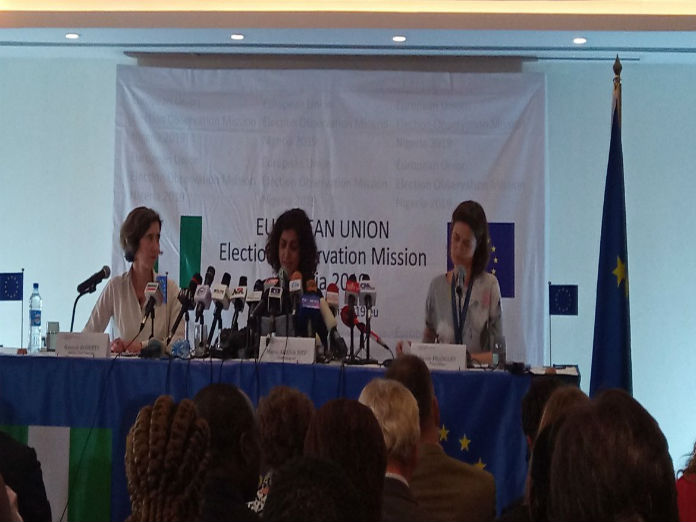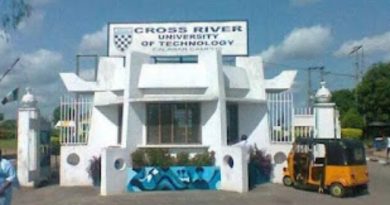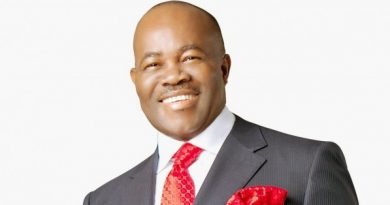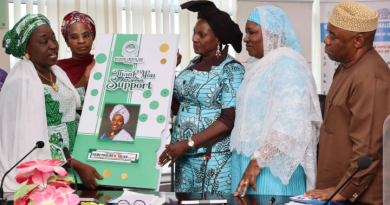EU calls for for more Transparency, Communication In Nigeria’s Electoral Process
The European Union Election Observation Mission (EU EOM) to Nigeria, has called for more transparency and Communication in the Nigerian electoral process.
The EU EOM Chief Observer, Naria Arena who stated this while presenting the mission’s preliminary statement in Abuja on Monday, 25 February, 2019, also said that the 23 February elections were marked by serious operational shortcomings resulting in delays but that, positively, civil society played a vital role in enhancing the transparency and accountability of the electoral process.
Maria Arena, said that INEC had operated in a difficult environment and made a number of improvements since 2015, including the introduction of continuous accreditation and voting.
“Going forward, there is a great need for more transparency and communication during the whole process, with political parties, civil society, the media and, most importantly, citizens,” said Ms Arena.
The EU EOM concluded that the elections were competitive and that candidates were able to campaign freely, although it stated that campaign rhetoric became more acrimonious closer to election day.
The mission expressed sadness at the loss of lives in violent incidents during the campaign and on election day.
“On behalf of the mission, may I offer our sincere condolences to the families and friends of those who lost their lives. Elections should be occasions of peaceful participation,” said the Chief Observer.
On the media, the mission’s media monitoring found that, positively, the federal government owned radio, as well as leading commercial broadcasters at national and regional level offered a diversity of views, adding however, that there were clear partisan programming by the Nigerian Television Authority, state-run media, and local commercial radio stations owned by politicians, which she noted gave advantage to incumbents at federal and state level.
According to Arena, “On election day, 91 EU observers saw opening, voting and closing processes at 261 polling units, and the collation of results at 94 centres across 31 states and the Federal Capital Territory. Polling procedures were not always followed, and in 14 per cent some essential materials were missing.
“Positively, in almost all observations of counting, party agents received copies of results forms. However, there were problems in filling out results forms and they were not displayed in half the units observed, weakening transparency”.
On the legal framework for elections, the EU EOM said there had been positive changes to the Constitution since the last elections, including reducing some of the minimum age requirements to be a candidate, meaning a more inclusive process. But the lack of further legal change was a missed opportunity.
The EU EOM emphasised the importance of transparency and accountability of institutions involved in elections. The Chief Observer, Maria Arena, remarked that Nigeria was fortunate to have so many civil society organisations, which have effectively contributed to election reform, voter awareness and scrutiny of the process.




